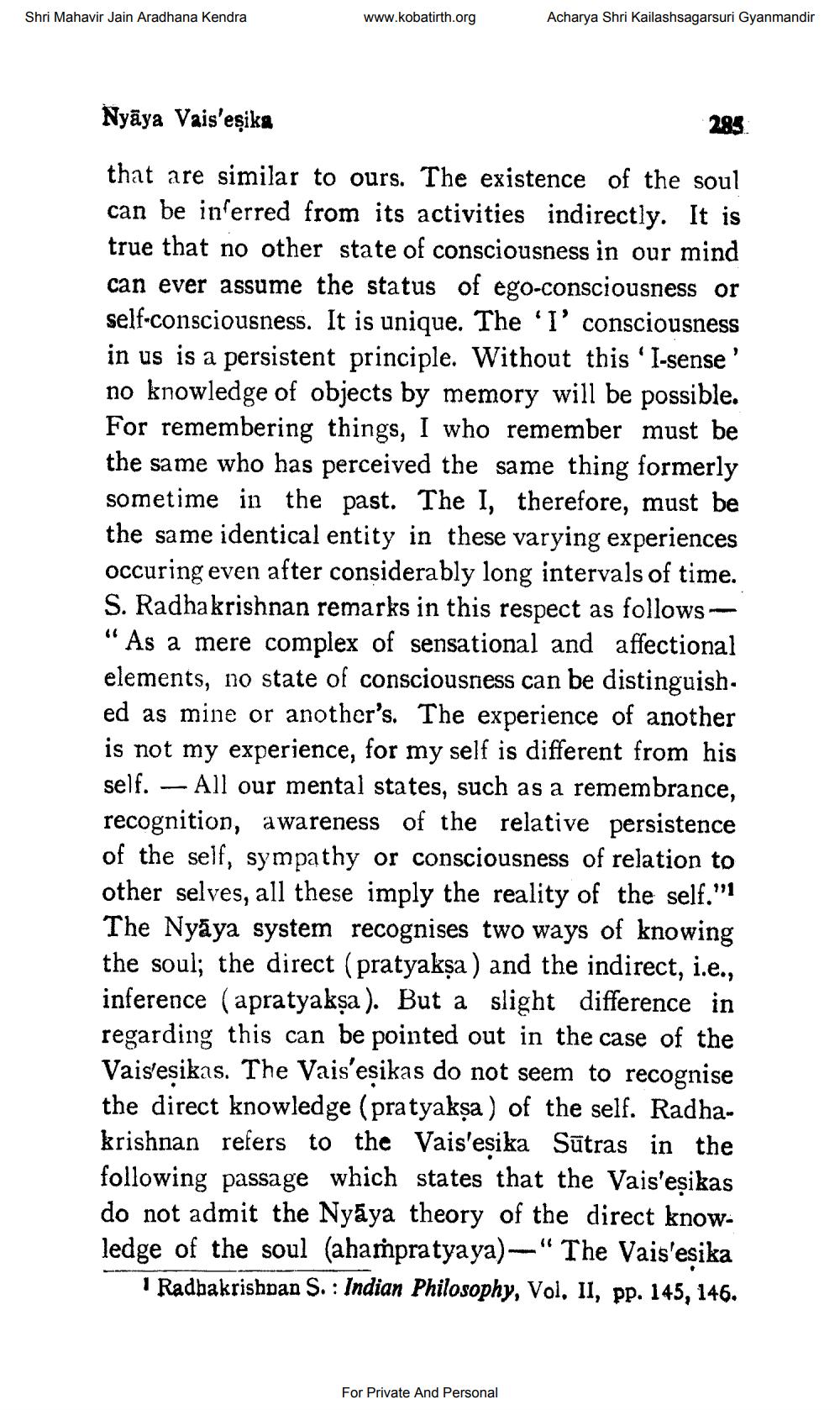________________
Shri Mahavir Jain Aradhana Kendra
www.kobatirth.org
Acharya Shri Kailashsagarsuri Gyanmandir
Nyāya Vais'eşika
285
that are similar to ours. The existence of the soul can be in'erred from its activities indirectly. It is true that no other state of consciousness in our mind can ever assume the status of ego-consciousness or self-consciousness. It is unique. The 'I' consciousness in us is a persistent principle. Without this ‘I-sense' no knowledge of objects by memory will be possible. For remembering things, I who remember must be the same who has perceived the same thing formerly sometime in the past. The I, therefore, must be the same identical entity in these varying experiences occuring even after considerably long intervals of time. S. Radhakrishnan remarks in this respect as follows“As a mere complex of sensational and affectional elements, no state of consciousness can be distinguish. ed as mine or another's. The experience of another is not my experience, for my self is different from his self. — All our mental states, such as a remembrance, recognition, awareness of the relative persistence of the self, sympathy or consciousness of relation to other selves, all these imply the reality of the self."1 The Nyāya system recognises two ways of knowing the soul; the direct (pratyakşa ) and the indirect, i.e., inference (apratyakşa). But a slight difference in regarding this can be pointed out in the case of the Vais'esikas. The Vais'esikas do not seem to recognise the direct knowledge (pratyaksa ) of the self. Radhakrishnan refers to the Vais'esika Sūtras in the following passage which states that the Vais'esikas do not admit the Nyāya theory of the direct knowledge of the soul (ahampratyaya) —"The Vais'eşika
1 Radhakrishnan S. : Indian Philosophy, Vol. II, pp. 145, 146.
For Private And Personal




